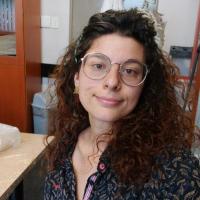Rania Richard

Rania Richard
University Neuchâtel
Country
Switzerland
Member since
Bio
As a PhD candidate in archaeozoology at the University of Neuchâtel in Switzerland, and in the process of co-registration at the University of the Witwatersrand in South Africa, I have developed a particular interest in human-animal relationships and subsistence strategies in prehistoric societies. My PhD research focuses on the Pleistocene-Holocene transition in South Africa, exploring how human groups responded to climatic and environmental changes during this period of major transformation across three different biomes. Through archaeozoological analysis, I aim to understand mobility patterns, resource management, and adaptation strategies.
Already during my Master’s studies, I deepened my passion for archaeozoology. My thesis combined archaeozoology with an ethnoarchaeological approach to investigate animal exploitation practices in Senegal. This research allowed me to explore modern analogies to better interpret archaeological faunal remains, particularly regarding butchery practices and patterns of bone discard.
I am also currently engaged in experimental archaeology as a complementary approach to my research, an interest I had already begun to develop during my Master’s. I conducted experiments to better understand the spatial distribution of faunal remains and bone fragmentation within archaeological sites.
Beyond research, I am passionate about public archaeology and outreach. At the Laténium Museum in Neuchâtel (Switzerland), I led workshops for children, introducing them to archaeological artefacts and ancient crafting techniques from the Palaeolithic to the Medieval period. These hands-on activities allowed young audiences to discover archaeology through experimentation and creativity.
I was also involved in the archaeological village of Gletterens, where I introduced visitors to Neolithic food practices, demonstrating prehistoric cooking techniques and discussing aspects of daily life in the Neolithic.
Through both my academic research and experimental practice, I am committed to making archaeology accessible and engaging, fostering dialogue between research and the wider public.
Already during my Master’s studies, I deepened my passion for archaeozoology. My thesis combined archaeozoology with an ethnoarchaeological approach to investigate animal exploitation practices in Senegal. This research allowed me to explore modern analogies to better interpret archaeological faunal remains, particularly regarding butchery practices and patterns of bone discard.
I am also currently engaged in experimental archaeology as a complementary approach to my research, an interest I had already begun to develop during my Master’s. I conducted experiments to better understand the spatial distribution of faunal remains and bone fragmentation within archaeological sites.
Beyond research, I am passionate about public archaeology and outreach. At the Laténium Museum in Neuchâtel (Switzerland), I led workshops for children, introducing them to archaeological artefacts and ancient crafting techniques from the Palaeolithic to the Medieval period. These hands-on activities allowed young audiences to discover archaeology through experimentation and creativity.
I was also involved in the archaeological village of Gletterens, where I introduced visitors to Neolithic food practices, demonstrating prehistoric cooking techniques and discussing aspects of daily life in the Neolithic.
Through both my academic research and experimental practice, I am committed to making archaeology accessible and engaging, fostering dialogue between research and the wider public.
